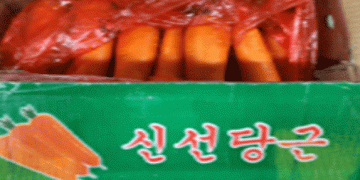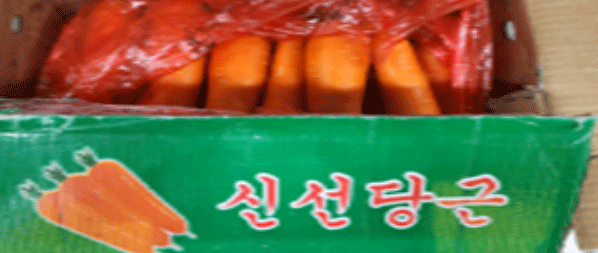- Product: Chinese carrots imported by Gangseo Distribution Co.
- Violation: Clothianidin detected at >0.05 mg/kg (exceeding safety limits)
- Source: Same exporter previously flagged on August 8, 2025
- Action: Immediate sales suspension and mandatory recall
Pesticide Risk Profile
| Parameter | Data |
|---|---|
| Clothianidin Use | Systemic insecticide for carrots/cabbages |
| Health Risks | Neurotoxicity, potential endocrine disruption |
| Global Trends | Banned in EU since 2018; restricted in US/Canada |
Import Safety Failures Exposed
- Repeated Offenses
- Same Chinese exporter implicated in multiple violations
- Reveals gaps in pre-export testing protocols
- Detection Methods
- South Korea uses LC-MS/MS for residue analysis
- Testing covers 586 pesticide compounds (2025 expanded list)
- Market Impact
- China supplies 37% of South Korea’s carrot imports
- 2025 rejection rate for Chinese produce: 2.1% (vs. 1.4% in 2024)
Consumer Protection Measures
- Public alert issued via MFDS channels
- Refund system activated at retail points
- Whistleblower incentives for reporting violations (via #1399 hotline or Naesonan app)
Global Context
- EU: Rejected 18 Chinese vegetable shipments in 2025 for pesticide issues
- Japan: Increased Chinese carrot inspections to 50% batch testing
- US FDA: Clothianidin tolerances under review (current limit: 0.02 mg/kg)
A Call for Stricter Controls
This incident underscores:
✓ Systemic weaknesses in China’s export compliance
✓ Need for blockchain traceability in fresh produce supply chains
✓ Opportunities for domestic/Korean FTA-partner growers to fill the gap































